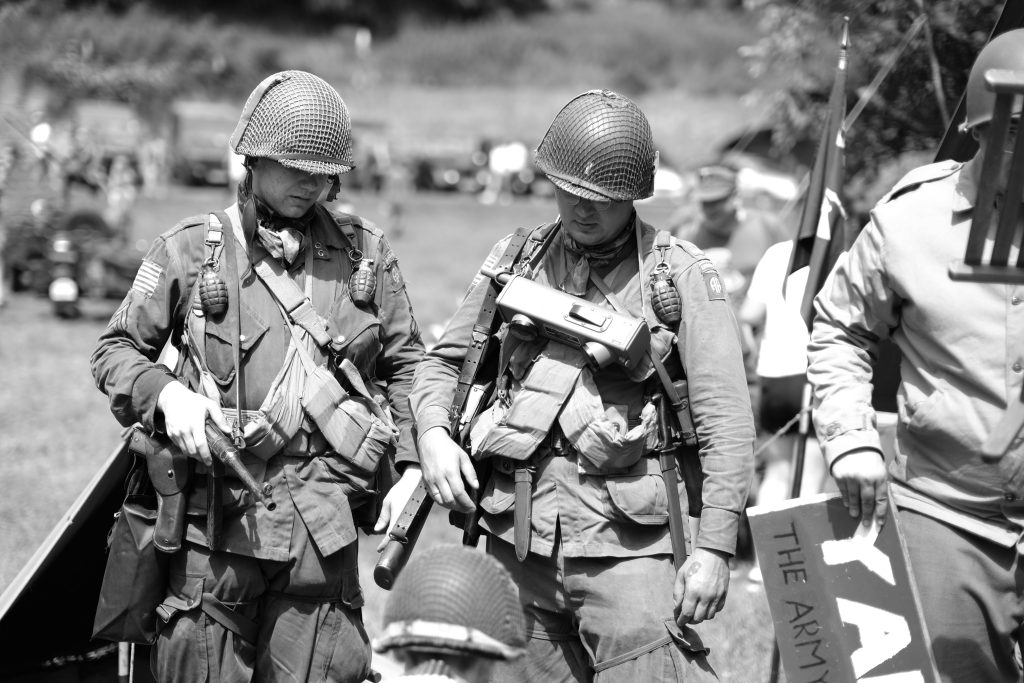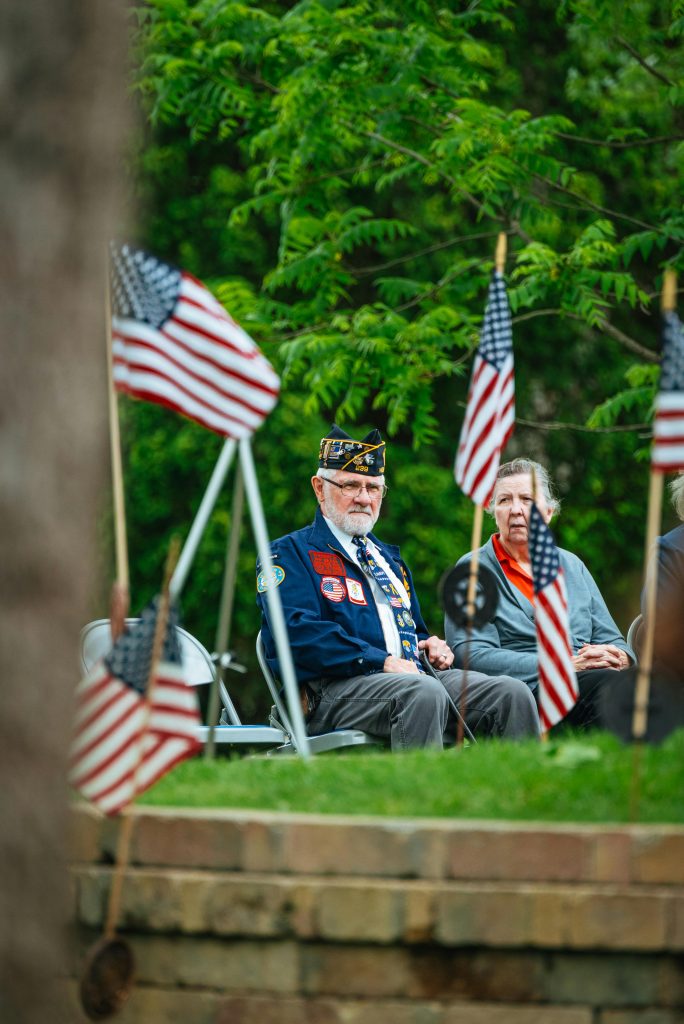Honoring Your Service: A Veteran’s Guide to Writing a Meaningful Memoir
February 21, 2025
Every veteran has a story. Military service experiences—shaped by courage, resilience, and camaraderie—transform lives in profound ways that outsiders often struggle to understand. Yet, translating those experiences into a meaningful narrative can feel overwhelming, especially for veterans who struggle to put their experiences into words.
Sharing their stories requires bravery and a willingness to confront powerful emotional memories. Though the process presents challenges, the rewards are immense. Writing about military service fosters healing, helps veterans process their experiences, and preserves their legacy for family, friends, and future generations.
A memoir ghostwriter provides essential support for veterans who don’t know where to begin. With professional guidance, veterans can turn unrefined memories into a polished book that captures their voice and values. This guide explores the importance of sharing veterans’ stories, the unique aspects of military life that shape these narratives, and how a ghostwriter can help bring them to life.
Why Writing Your Story Matters
Memoir writing is more than just documenting events; it facilitates healing, fosters understanding, and creates a lasting legacy. Veterans often find deep meaning in sharing their personal narratives, which not only preserve their legacy but also offer personal growth through introspection.

Isabel Allende notes that memoir writing demands careful reflection, making it a healing process. Veterans often grapple with fragmented or overwhelming memories of camaraderie, sacrifice, and resilience.
Writing brings clarity that talking alone may not provide, helping to organize thoughts and emotions. Revisiting past experiences allows veterans to reconstruct their life stories, highlighting both achievements and struggles.
A veteran’s story is also a treasured inheritance for their loved ones. Families often receive only glimpses of military service through occasional stories or vintage photos. A well-crafted memoir offers a fuller picture of a veteran’s experiences, sacrifices, and contributions.
Madeleine L’Engle emphasized the importance of sharing personal narratives, no matter how small they may seem. These stories connect families, shape individual identities, and enrich our collective history.
Beyond personal significance, veterans’ stories hold immense cultural value. They provide insight into the human dimension of military service, preserving personal sacrifices behind historic events. When veterans share their experiences, they add their voices to the collective memory, deepening society’s understanding of military life.
Whether writing for healing, legacy, or historical preservation, veterans who share their stories make invaluable contributions to themselves, their families, and the broader world.
What Makes a Veteran’s Story Unique?
While every memoir is unique, veterans’ stories carry particular significance. Military service is often misunderstood by civilians, as it involves profound bravery, deep bonds between soldiers, and remarkable sacrifice and resilience. Veterans’ memoirs resonate because they blend personal experiences with universal themes.

George Meredith described memoirs as history’s hidden passages. Veterans’ stories provide perspectives that official records cannot capture, revealing quiet acts of bravery, the deep friendships forged in service, and the personal cost of duty.
These firsthand accounts transform historical facts into relatable human experiences.
Veterans’ memoirs stand out because they merge personal narratives with larger themes of duty, honor, and perseverance. They offer inspiration to others facing life’s challenges and provide a unique lens on service and sacrifice.
However, conveying these stories can be difficult. Veterans often have fragmented memories or emotions too intense to confront. Many downplay their achievements, avoiding labels like “hero” and instead focusing on personal experiences. This raw, unfiltered honesty makes their narratives especially compelling.
Veterans’ memoirs remind us that behind every uniform is a person who faced fear, relied on comrades, and endured extraordinary challenges. No official history or fictional account can replicate this genuine perspective. These stories offer civilians a rare glimpse into a world most will never experience, fostering deeper understanding and appreciation of military life.
The Role of a Memoir Ghostwriter
Even veterans eager to share their stories may struggle with organization, writing skills, or emotional barriers. A memoir ghostwriter helps transform scattered memories into a cohesive and meaningful narrative.

Ghostwriters ensure veterans’ authentic voices shine through.
As William Zinsser put it, “Writing becomes animated when someone shares their thoughts and actions directly.”
A skilled ghostwriter collaborates with veterans to capture their unique perspectives and values accurately.
Collaborating to Create a True Reflection
Trust is key in a successful veteran-ghostwriter partnership. Veterans may worry that their story will lose authenticity if someone else writes it.
A professional ghostwriter’s role is to enhance, not replace, the veteran’s voice. Veterans stay engaged throughout the process, reviewing drafts and providing input to ensure the final book reflects their vision.
Saving Time and Offering Expertise
Writing a book requires expertise in narrative structure, pacing, and storytelling. Ghostwriters bring these skills, enabling veterans to complete their memoirs efficiently. By handling the technical aspects of writing, ghostwriters allow veterans to focus on sharing their experiences.
The Final Product
The collaboration between a veteran and a ghostwriter results in a book that serves as both a personal legacy and a lasting historical contribution. It preserves the sacrifices, lessons, and triumphs of military service, ensuring they are shared with future generations.
5 Steps to Writing Your Story
Writing a memoir can feel daunting, but breaking it into manageable steps makes the process rewarding. Whether writing independently or working with a ghostwriter, these steps will help bring your story to life.
Step 1: Clarify Your Purpose
Determine why you want to share your story. Is it to preserve your legacy for your family? To inspire others? To find personal healing? Identifying your motivation will shape your memoir’s tone and structure.
A memoir isn’t about listing every detail of your life but crafting a meaningful story. As Toni Morrison advised, “Write the book you want to read when no such book exists.” Your perspective and purpose will guide your narrative.

Step 2: Identify Key Themes and Moments
Focus on defining experiences rather than recounting every event.
What shaped you? Key moments may include deep friendships, acts of courage, or the transition back to civilian life.
Identifying overarching themes—resilience, leadership, sacrifice—will make your story relatable and impactful.
Step 3: Gather Supporting Materials
Personal items like letters, photos, journals, and medals add depth and authenticity to your story. Conversations with old comrades can also help trigger memories. These materials enrich your memoir, making it more vivid and engaging.
Step 4: Hire a Ghostwriter
Even if you don’t consider yourself a writer, your story deserves to be told. A professional memoir ghostwriter can help shape your memories into a compelling, well-structured book. Working with a ghostwriter saves time and ensures your story is told with clarity and impact.
Step 5: Collaborate Throughout the Process
A skilled ghostwriter will preserve your voice and values, but your input remains essential. Reviewing drafts and providing feedback ensures the final book accurately reflects your story and intentions.
Writing as a Tool for Empowerment
Writing is an act of empowerment. Reflecting on past experiences provides insight into personal strength, purpose, and growth.

Veterans can reclaim their narratives, ensuring their stories are conveyed on their own terms.
A completed memoir is more than just a book; it is a testament to resilience and wisdom gained through service.
Veterans often find pride in storytelling, transforming painful memories into meaningful lessons that educate and inspire others.
Though writing about military service can be challenging, it is one of the most powerful ways to honor the journey.
By revisiting difficult moments with vulnerability and courage, veterans create memoirs that preserve both their personal experiences and their resilience.
A Lasting Legacy
Every veteran’s story is a precious legacy with the power to heal, educate, and inspire. Military service is an individual journey, yet its impact extends far beyond the personal realm. Publishing a memoir allows veterans to connect with their families, educate future generations, and contribute to our collective understanding of military service.

Sharing difficult memories takes courage, but as Brené Brown reminds us, bravery is about showing up and allowing ourselves to be seen.
Veterans who tell their stories demonstrate remarkable strength and generosity, preserving their sacrifices and triumphs for future generations.
For those unsure where to start, a memoir ghostwriter can make the process both accessible and fulfilling. With professional guidance, veterans can transform their experiences into a powerful and enduring book—a legacy that will stand the test of time.






























